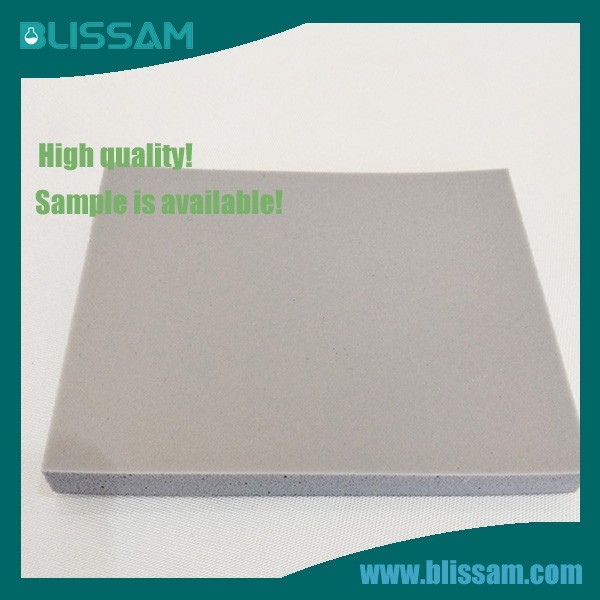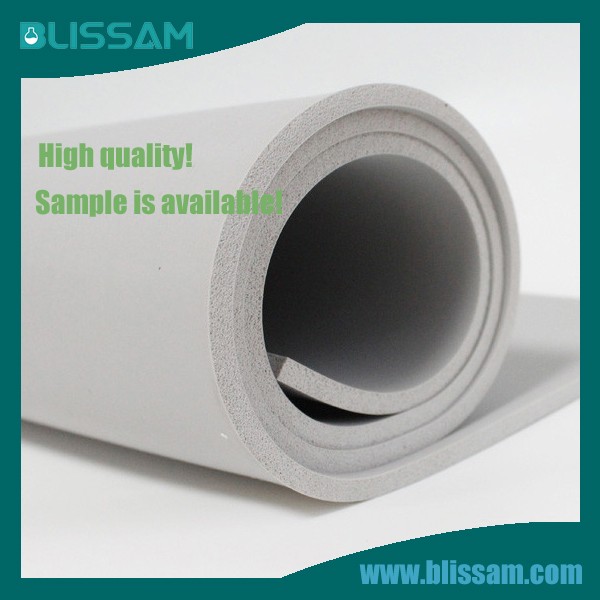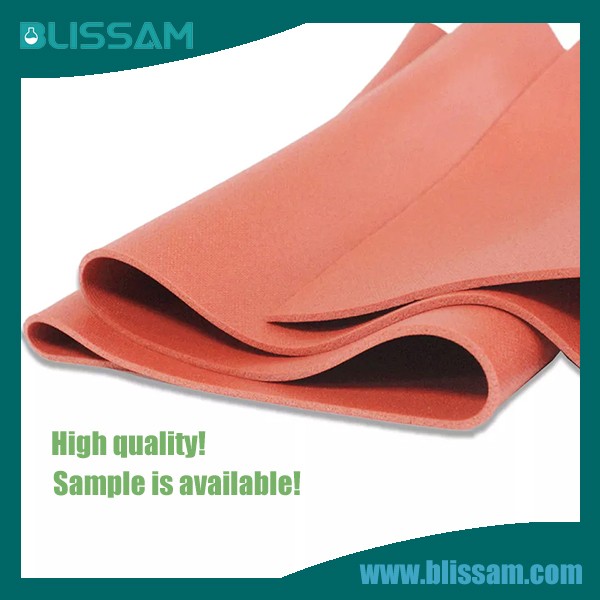In the world of medical devices and healthcare products, comfort, durability, and safety are critical factors that influence product design and material selection. One material that has become increasingly popular for medical cushioning applications is silicone foam. With its unique properties, such as flexibility, biocompatibility, and resilience, silicone foam is used in various medical applications, from wound care and patient support systems to prosthetics and orthopedic devices. At BLISSAM , we are proud to offer cutting-edge silicone foam solutions, like our BSF-200 Series, that are specifically designed to meet the demands of medical cushioning.
In this article, we will explore the advantages of silicone foam in medical applications, its unique properties, and why it is considered an advanced solution for improving patient comfort and care.
Silicone foam is a versatile material made from silicone polymers that can expand and form a cellular structure when cured. This foam is flexible, lightweight, and resistant to extreme temperatures, making it suitable for many industrial and medical applications. The open-cell structure of silicone foam allows for high breathability , while its closed-cell variants provide superior water and moisture resistance.
At BLISSAM, our BSF-200 Series silicone foams come in a range of densities, typically from 100 to 500 kg/m³ , offering customization options to meet the specific cushioning and support needs in medical settings. These foams are used in everything from patient beds and surgical positioning cushions to wearable medical devices.

One of the primary benefits of silicone foam is its ability to provide excellent pressure redistribution, making it ideal for medical cushioning. Patients who are bedridden or immobilized for extended periods are at risk of developing pressure ulcers, which can cause significant discomfort and lead to serious health complications. Silicone foam can alleviate these risks by evenly distributing body weight across the surface, reducing pressure points.
For example, BLISSAM's BSF-250 Series foam is designed with a medium density of 300 kg/m³, providing a balance of support and softness that reduces pressure on vulnerable areas like the shoulders, hips, and lower back. This makes it ideal for use in hospital beds and wheelchairs.
Medical materials must meet strict safety standards to ensure they do not cause adverse reactions in patients. Silicone foam is biocompatible, meaning it is non-toxic and safe for direct contact with the skin. It is hypoallergenic and does not contain harmful additives that could trigger allergic reactions, making it suitable for long-term use in medical devices and patient support products.
At BLISSAM , our BSF-230 Series silicone foam has undergone rigorous testing to meet ISO 10993 biocompatibility standards, ensuring that it is safe for use in contact with human tissue and medical devices.
Medical environments demand materials that are durable and can withstand continuous use. Silicone foam offers exceptional resilience, maintaining its structural integrity even after repeated compression. It resists tearing, does not degrade over time, and is resistant to extreme temperatures, moisture, and UV exposure.
The BSF-210 Series silicone foam from BLISSAM is engineered to maintain its cushioning properties even after thousands of compression cycles. This durability ensures that products like surgical table pads and patient mattresses retain their shape and support over time, making them a reliable choice for medical professionals.
Silicone foam is naturally resistant to moisture, making it an ideal material for use in environments where hygiene and fluid resistance are crucial. The foam's structure prevents the absorption of liquids, helping to maintain a clean and sterile environment. In addition, silicone foam can withstand high temperatures without losing its structural integrity, making it suitable for sterilization processes in medical settings.
The BSF-240 Series foam from BLISSAM is specifically designed to be water-resistant, while also being able to handle temperatures up to 250°C during autoclaving or other sterilization methods. This ensures the foam can be safely reused in medical applications.
For patients using prosthetics, comfort and breathability are key concerns. Silicone foam offers excellent airflow due to its open-cell structure, which allows for the dissipation of heat and moisture. This makes it an ideal material for prosthetic liners and orthopedic braces, where the foam needs to be in contact with the skin for extended periods.
At BLISSAM , our BSF-270 Series silicone foam has been specifically designed for prosthetic applications, with a lower density of 150 kg/m³ to provide maximum breathability while still offering essential support and comfort.

Silicone foam's versatility makes it applicable in various medical fields, including:
Patient Support Systems: Used in mattresses, cushions, and pads for hospital beds, surgical tables, and wheelchairs to prevent pressure ulcers and ensure patient comfort.
Prosthetics and Orthopedics: Silicone foam provides cushioning and support in prosthetic limbs, braces, and orthopedic footwear, enhancing comfort and reducing friction on the skin.
Wearable Medical Devices: Silicone foam is used in wearable medical devices like glucose monitors, insulin pumps, and other equipment that requires continuous skin contact without irritation.
Surgical Positioning: Silicone foam cushions help stabilize patients during surgeries, reducing the risk of pressure injuries while ensuring proper body alignment.
Q: Is silicone foam suitable for long-term use in medical devices?
A: Yes, silicone foam is highly durable and biocompatible, making it ideal for long-term use in medical devices. BLISSAM’s BSF-230 Series silicone foam meets ISO 10993 biocompatibility standards, ensuring it is safe for extended contact with skin and human tissue.
Q: How does silicone foam compare to traditional foam in terms of durability?
A: Silicone foam is significantly more durable than traditional polyurethane or latex foams. It maintains its structure and cushioning properties after thousands of compression cycles. BLISSAM’s BSF-210 Series silicone foam is designed to offer long-term resilience even in demanding medical applications.
Q: Can silicone foam be sterilized for reuse in medical environments?
A: Yes, silicone foam is resistant to high temperatures and can be sterilized using methods such as autoclaving. BLISSAM’s BSF-240 Series silicone foam can withstand temperatures up to 250°C , making it ideal for use in environments that require frequent sterilization.
Q: What makes silicone foam ideal for prosthetic liners?
A: Silicone foam is highly breathable and provides excellent cushioning, which helps reduce friction and irritation on the skin. The BSF-270 Series silicone foam from BLISSAM is specifically designed with a lightweight, breathable structure, making it comfortable for use in prosthetic liners and orthopedic devices.

Silicone foam is a highly versatile and advanced material that offers significant benefits in medical cushioning applications. Its combination of comfort, durability, and biocompatibility makes it ideal for use in patient support systems, prosthetics, surgical positioning, and more. At BLISSAM , our BSF Series silicone foams provide tailored solutions to meet the needs of the medical industry, ensuring superior performance in terms of pressure relief, moisture resistance, and long-term resilience.
By choosing silicone foam, medical professionals can enhance patient comfort, reduce the risk of pressure injuries, and ensure the longevity of medical devices and equipment.
Contact:
Phone: +86-15957191858
E-mail: info@blissam.com
Whatsapp:+8615957191858
Add: A647, No. 9, Xiyuan Road, Xihu District, Hangzhou, Zhejiang, China
We chat
